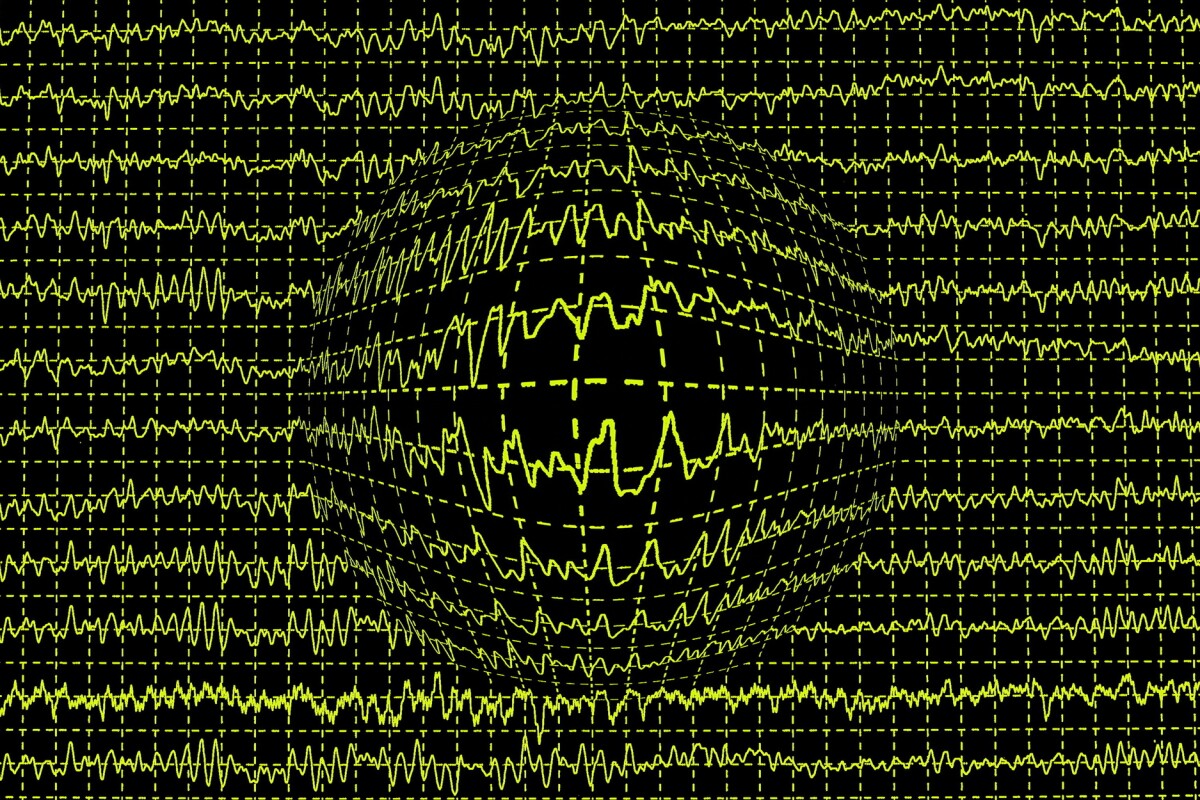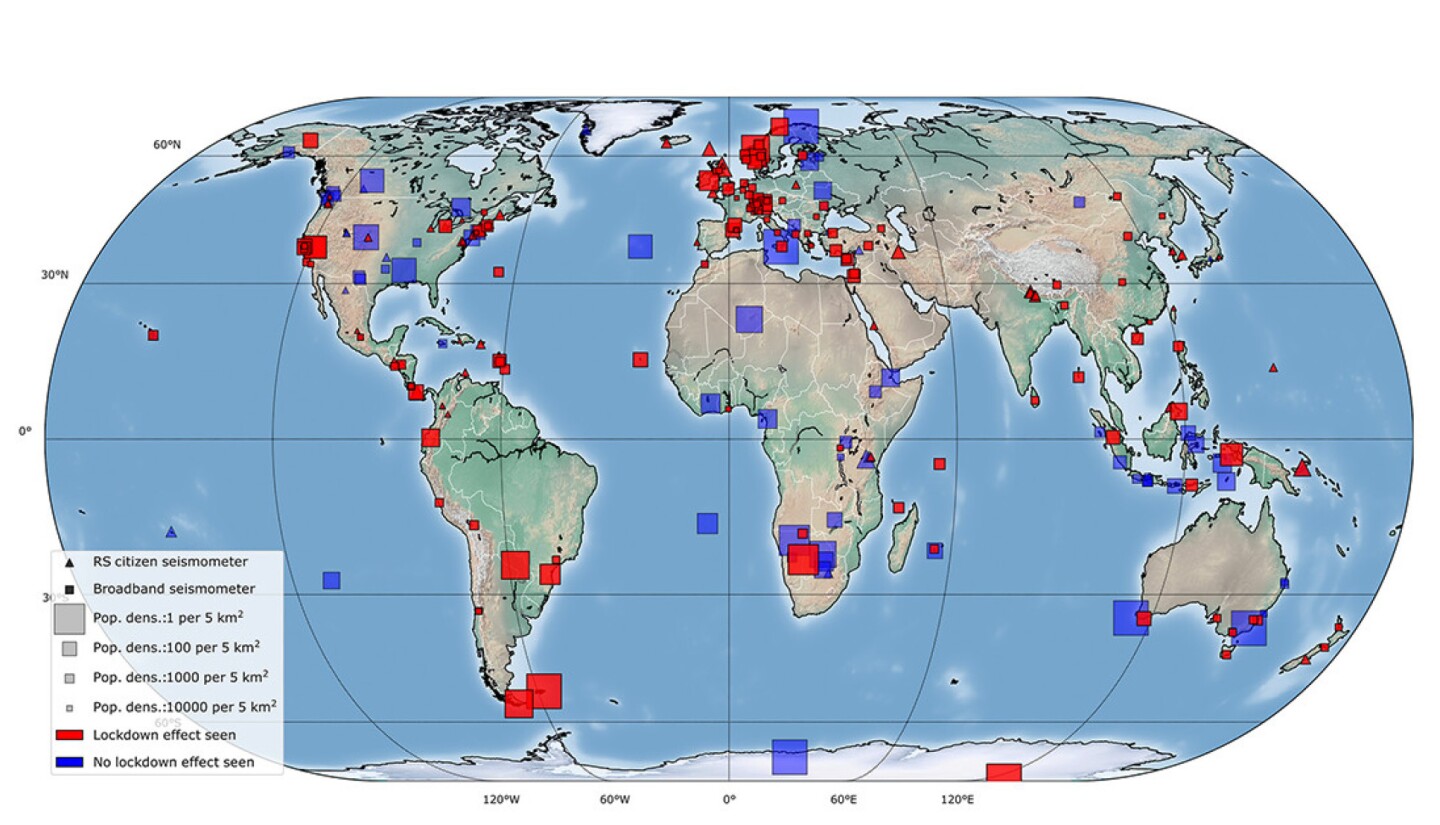COVID-19 lockdowns halve human-related seismic vibrations across globe
By Nick Lavars July 23, 2020

A reduction in human activity has resulted in a pronounced "quiet period" for seismic noise
dusan964/Depositphotos
As much of the world has ground to a halt in 2020 due to the spread of the novel coronavirus, it has provided scientists with a unique opportunity to observe some of the impacts we humans have on the planet. Researchers from Imperial College London have delved into what these lockdowns have meant for human-caused Earth vibrations, leading to the discovery of what they say is the longest and most pronounced quiet period of seismic noise in recorded history.
With less humans on the move, we have seen significant dips in carbon emissions and air pollution at different points of 2020, with the latter even being shown to boost the output of solar panels in certain cities.
The new study centers on seismic noise generated by vibrations in the Earth. While these can come from natural phenomena like earthquakes and volcanoes, they can also be generated by human activity such as travel and industry.
These vibrations are measured by seismometers, and by looking at data taken from stations around the world scientists can track declines in human-generated seismic noise. These have previously been observed during lulls like the Christmas and New Year period, but the new analysis shows that the COVID-19 lockdowns have taken things to a whole new level.
The data was sourced from 268 seismic stations in 117 different countries, and significant reductions in noise were observed at 185 of those following the lockdowns in many areas. In all, this amounted to an average drop in human-generated vibrations of 50 percent between March and May this year, with the largest drops seen in dense urban areas such as New York City and Singapore.

They study drew on data from 268 seismic stations in 117 countries
Lecocq et al.
“This quiet period is the longest and largest dampening of human-caused seismic noise since we started monitoring the Earth in detail using vast monitoring networks of seismometers,” says study co-author Dr Stephen Hicks.
Beyond offering another interesting insight into the effects of the pandemic, the research also opens up new pathways of study relating to human-generated noise and natural seismic vibrations. The quiet time has enabled the scientists to tune into more subtle earthquake signals that would otherwise be drowned out, which might be indicative of impending disasters and could lead to new and improved techniques to detect the warning signs.
“The lockdowns caused by the coronavirus pandemic may have given us a glimmer of insight into how human and natural noise interacts with the Earth,” says Hicks. “We hope this insight will spawn new studies that help us listen better to the Earth and understand natural signals we would otherwise have missed.”
The research was published in the journal Science, while the video below offers a visualization of the shift in seismic noice as the lockdowns took effect.
COVID-19 lockdown caused 50% global reduction in human-linked Earth vibrations
Source: Imperial College London
By Nick Lavars July 23, 2020

A reduction in human activity has resulted in a pronounced "quiet period" for seismic noise
dusan964/Depositphotos
As much of the world has ground to a halt in 2020 due to the spread of the novel coronavirus, it has provided scientists with a unique opportunity to observe some of the impacts we humans have on the planet. Researchers from Imperial College London have delved into what these lockdowns have meant for human-caused Earth vibrations, leading to the discovery of what they say is the longest and most pronounced quiet period of seismic noise in recorded history.
With less humans on the move, we have seen significant dips in carbon emissions and air pollution at different points of 2020, with the latter even being shown to boost the output of solar panels in certain cities.
The new study centers on seismic noise generated by vibrations in the Earth. While these can come from natural phenomena like earthquakes and volcanoes, they can also be generated by human activity such as travel and industry.
These vibrations are measured by seismometers, and by looking at data taken from stations around the world scientists can track declines in human-generated seismic noise. These have previously been observed during lulls like the Christmas and New Year period, but the new analysis shows that the COVID-19 lockdowns have taken things to a whole new level.
The data was sourced from 268 seismic stations in 117 different countries, and significant reductions in noise were observed at 185 of those following the lockdowns in many areas. In all, this amounted to an average drop in human-generated vibrations of 50 percent between March and May this year, with the largest drops seen in dense urban areas such as New York City and Singapore.

They study drew on data from 268 seismic stations in 117 countries
Lecocq et al.
“This quiet period is the longest and largest dampening of human-caused seismic noise since we started monitoring the Earth in detail using vast monitoring networks of seismometers,” says study co-author Dr Stephen Hicks.
Beyond offering another interesting insight into the effects of the pandemic, the research also opens up new pathways of study relating to human-generated noise and natural seismic vibrations. The quiet time has enabled the scientists to tune into more subtle earthquake signals that would otherwise be drowned out, which might be indicative of impending disasters and could lead to new and improved techniques to detect the warning signs.
“The lockdowns caused by the coronavirus pandemic may have given us a glimmer of insight into how human and natural noise interacts with the Earth,” says Hicks. “We hope this insight will spawn new studies that help us listen better to the Earth and understand natural signals we would otherwise have missed.”
The research was published in the journal Science, while the video below offers a visualization of the shift in seismic noice as the lockdowns took effect.
COVID-19 lockdown caused 50% global reduction in human-linked Earth vibrations
Source: Imperial College London
No comments:
Post a Comment